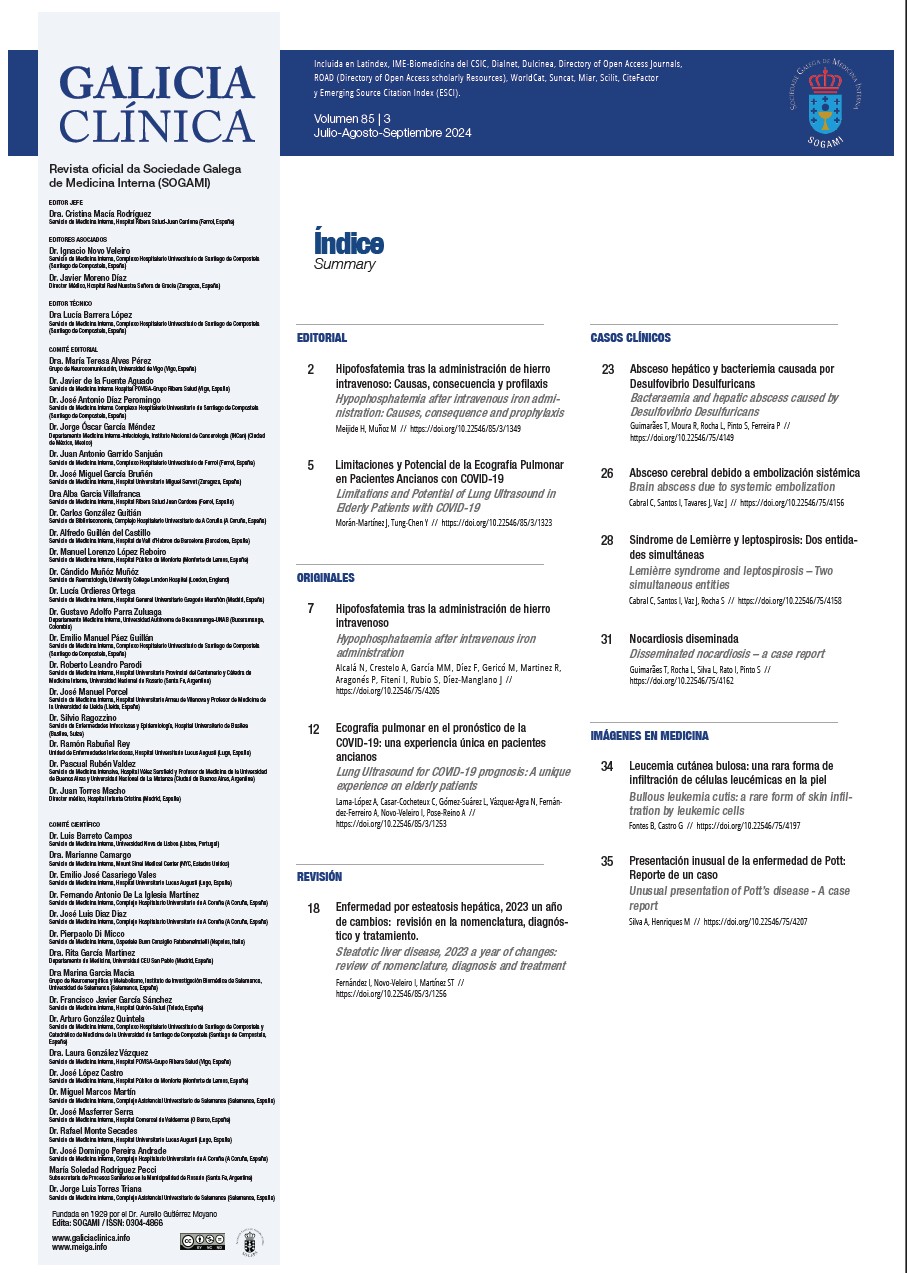Abstract
This case report presents a rare liver abscess caused by Desulfovibrio desulfuricans bacteremia in an elderly Indian patient. Desulfovibrio spp. are gram-negative, sulfate-reducing anaerobic bacteria that are typically found in the environment and can also be normal inhabitants of the oral cavity and intestinal tract. While liver abscesses are commonly caused by gram-negative bacilli, Desulfovibrio spp. are rarely reported as causative agents. The patient, an 83-year-old Indian female, was living in Portugal for a long time. She had multiple comorbidities and presented with general malaise, asthenia associated with decreased appetite, and diarrhea. CT scan confirmed the presence of liver abscesses and blood cultures identified Desulfovibrio desulfuricans as the causative agent. Treatment involved percutaneous drainage of the abscesses and a 6-week course of antibiotics with metronidazole initially and then with amoxicillin/clavulanic acid. The patient showed clinical improvement, and subsequent negative haemocultures and imaging control indicated the effectiveness of the treatment. However, the patient's condition deteriorated due to respiratory failure caused by COVID-19, highlighting the impact of underlying comorbidities. The rarity of Desulfovibrio desulfuricans infections in Portugal further emphasizes the significance of this case. It raises questions about the potential influence of ethnicity and geography on susceptibility to such infections, warranting further research.
This work is licensed under a Creative Commons Attribution-NonCommercial-NoDerivatives 4.0 International License.
Copyright (c) 2023 GaliciaClinica - Official Journal of the Galician Society of Internal Medicine (SOGAMI)


